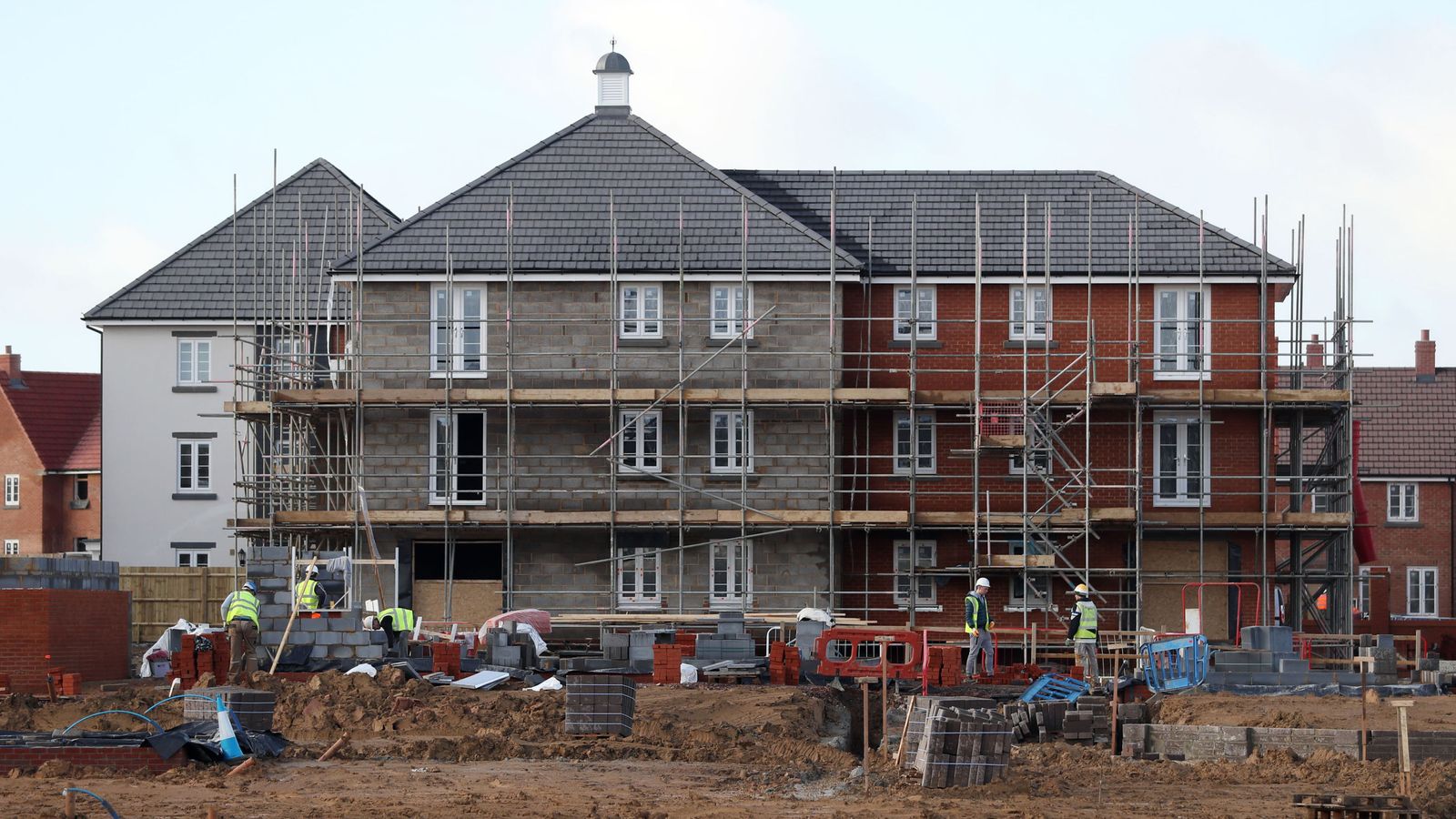Number of listings have been falling since the pandemic began.
The number of new build listings in Britain has fallen by 40% in the past year and 50% since the start of the pandemic.
This was revealed in the latest market analysis by Unlatch, a new homes sales progression and aftercare platform for developers and housebuilders.
In January 2020, when COVID-19 was starting to make headlines, there was a total of 48,752 new build homes listed for sale across Britain’s housing market. By August 2021, at which point the government’s stamp duty holiday was in full effect and special measures had been taken to ensure that housebuilding could continue, the number of new build listings had taken a slight drop to a total of 40,306.
Today, however, there are just 25,468 new build listings on the market – an annual drop of 36.8% and a fall of 47.8% since the start of the pandemic.
Lee Martin, head of UK for Unlatch, said that while new homes have been snapped up at some pace, the volume entering the market has not been enough to keep stock levels buoyant.
“At the same time, there has been an increase in the popularity of off-plan sales over the last 12 to 18 months, which has also contributed to homes being snapped up well in advance of reaching the market,” Martin pointed out. “As a result, the level of available new build stock on the current market has plummeted, particularly over the last year.
“We all know how strong buyer demand has been and still is, and we know that new build homes offer much better energy efficiency which, in the midst of this cost-of-living crisis, is hugely important. But if properties aren’t being delivered to the market, it doesn’t do much for the nation’s homebuyers.”R
Why then is supply still so low? Martin said there are several potential reasons.
“One can only assume that the current global socioeconomic situation is to blame for slow supply,” he stated. “From the Ukraine conflict, to the full effects of Brexit, materials are more expensive, quality labour is in short supply, and the government has basically taken a two-month hiatus to nominate a new prime minister.”
What’s certain, according to Martin, is that something needs to change, and it needs to happen quickly.
“The starting point should be enabling housebuilders to better deliver by allowing them greater freedom and less government intervention,” he added.
Meanwhile, data showed that the region that has experienced the biggest decline in new build stock is the South West, where listings are down 51.3% on the year and 64.2% since January 2020. The South East is reporting an annual decline of 48.9%, while listings in the East of England have dropped by 48.6%.
Unlatch said there is not a single region of Britain where the number of new build listings has increased either on the year or since the pandemic, but the smallest annual drop was reported in Yorkshire and the Humber (-14.4%) while the smallest pandemic drop was found in London (-27.1%).
Government Rejects ‘Complex’ Stamp Duty Changes
The government has rebuffed calls to assess whether different rates of Stamp Duty could incentivise property development or sales of energy efficient homes.
Stephen Farry MP for the Alliance Party of Northern Ireland raised in the issue in a parliamentary question to the Treasury.
He asked: “Whether (the Chancellor) has made an assessment of the potential merits of using differential rates of Stamp Duty to incentivise the development or purchase of comparatively energy efficient housing.”
But Lucy Frazer, Financial Secretary to the Treasury, said there were no current plans for reform of the controversial property tax.
She said: “The Government does not have any plans to reform Stamp Duty Land Tax (SDLT).
“SDLT is charged on the purchase of property or land in England and Northern Ireland where the value is over £125,000.
“First-time buyers do not pay any SDLT on purchases below £300,000. Introducing incentives based on energy consumption would add significant complexity to the current operation of the system.
“The Government keeps all taxes under review.”

